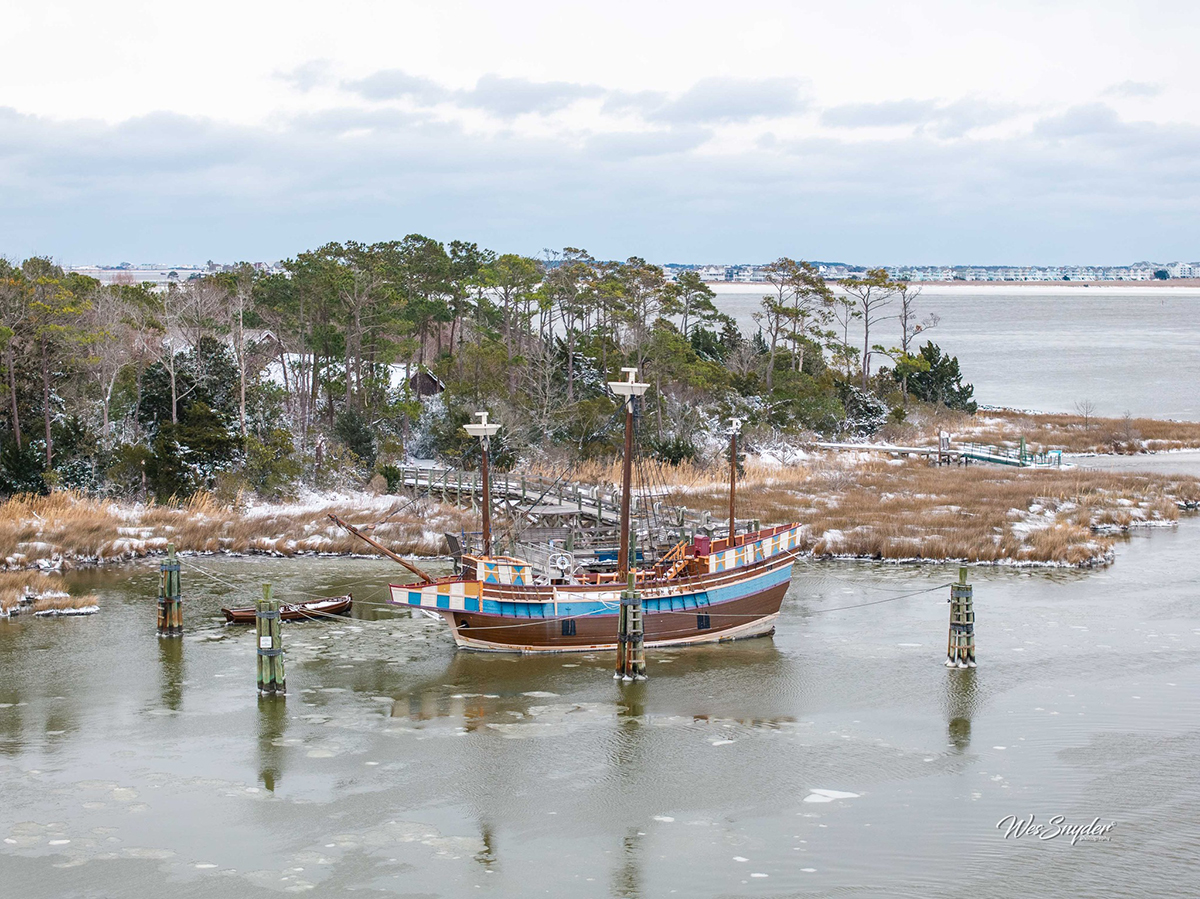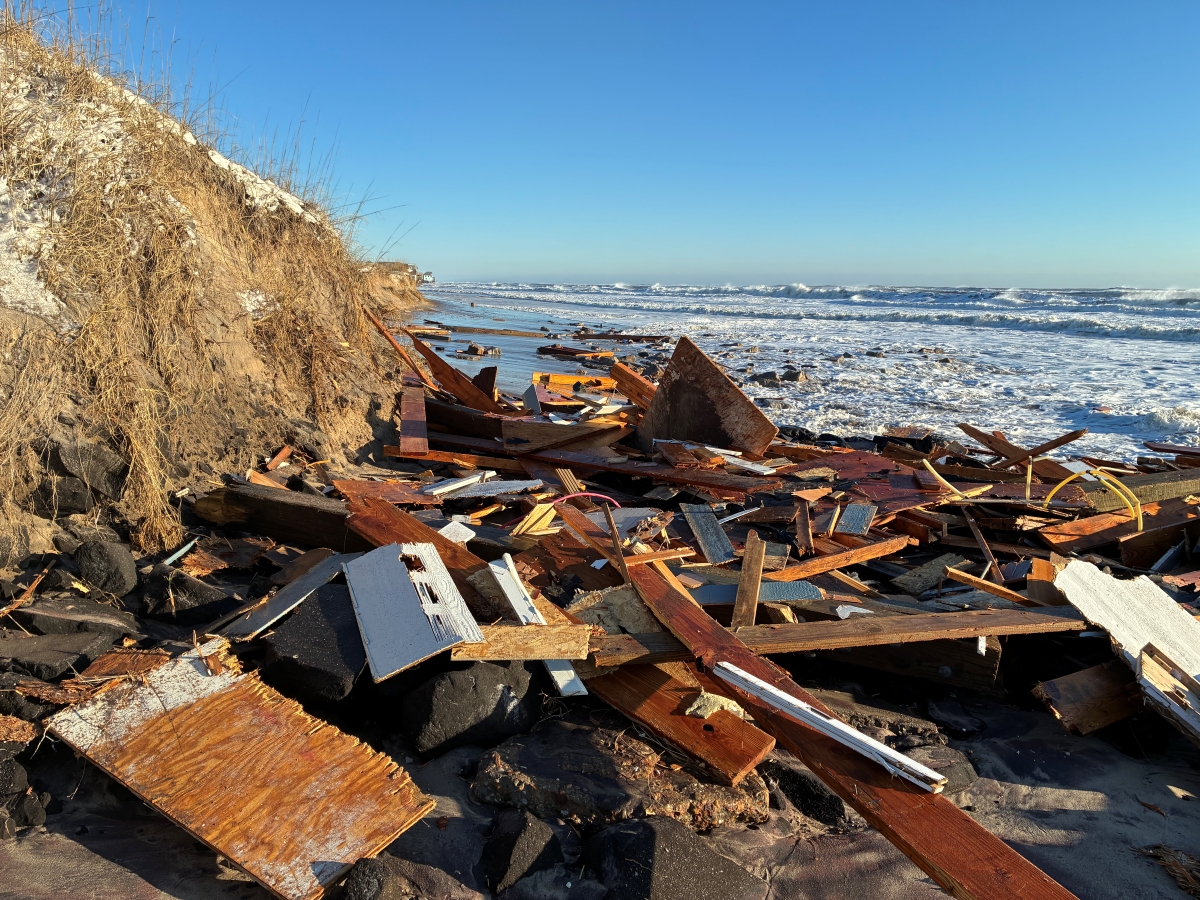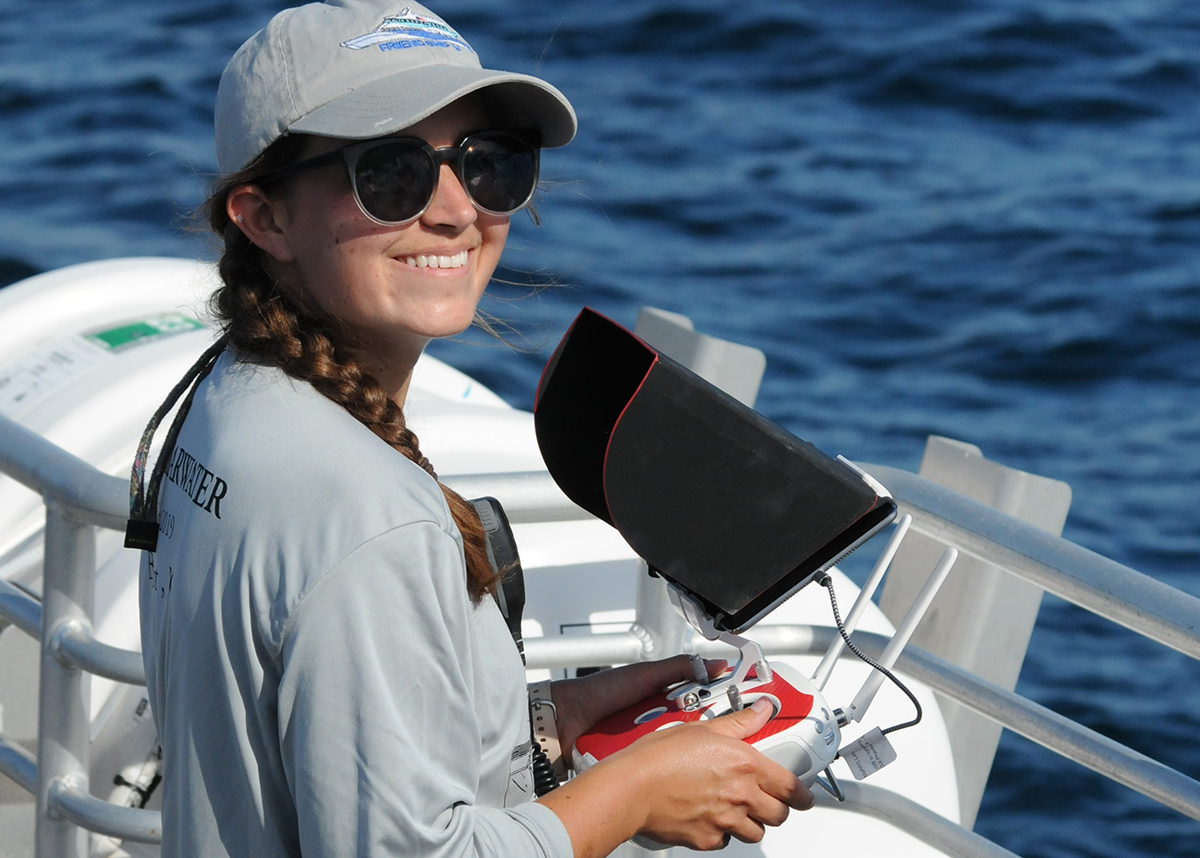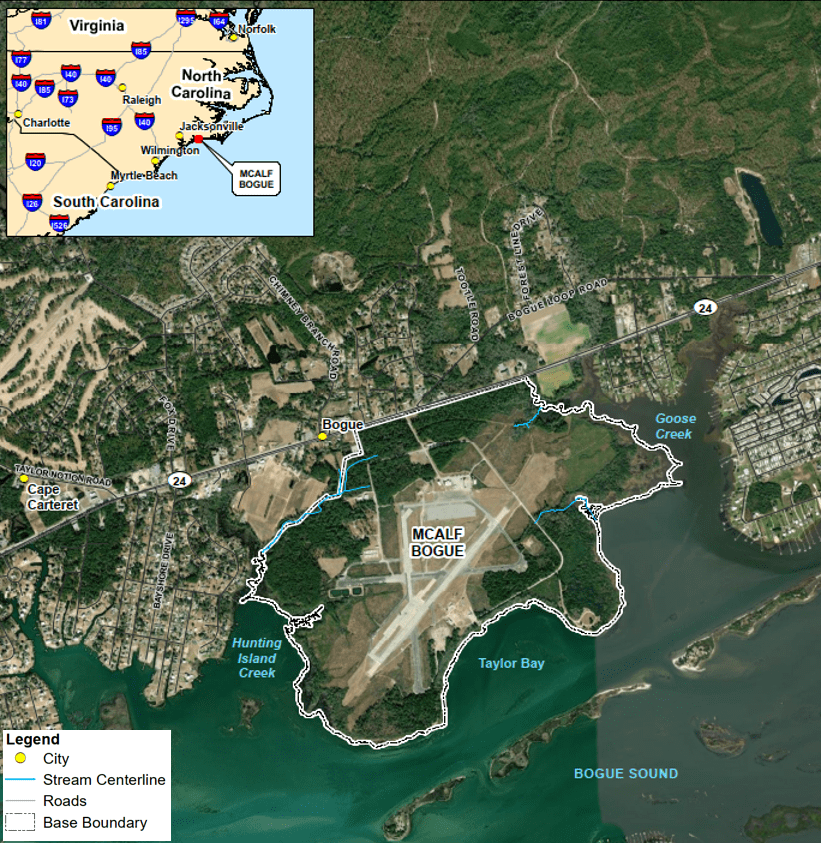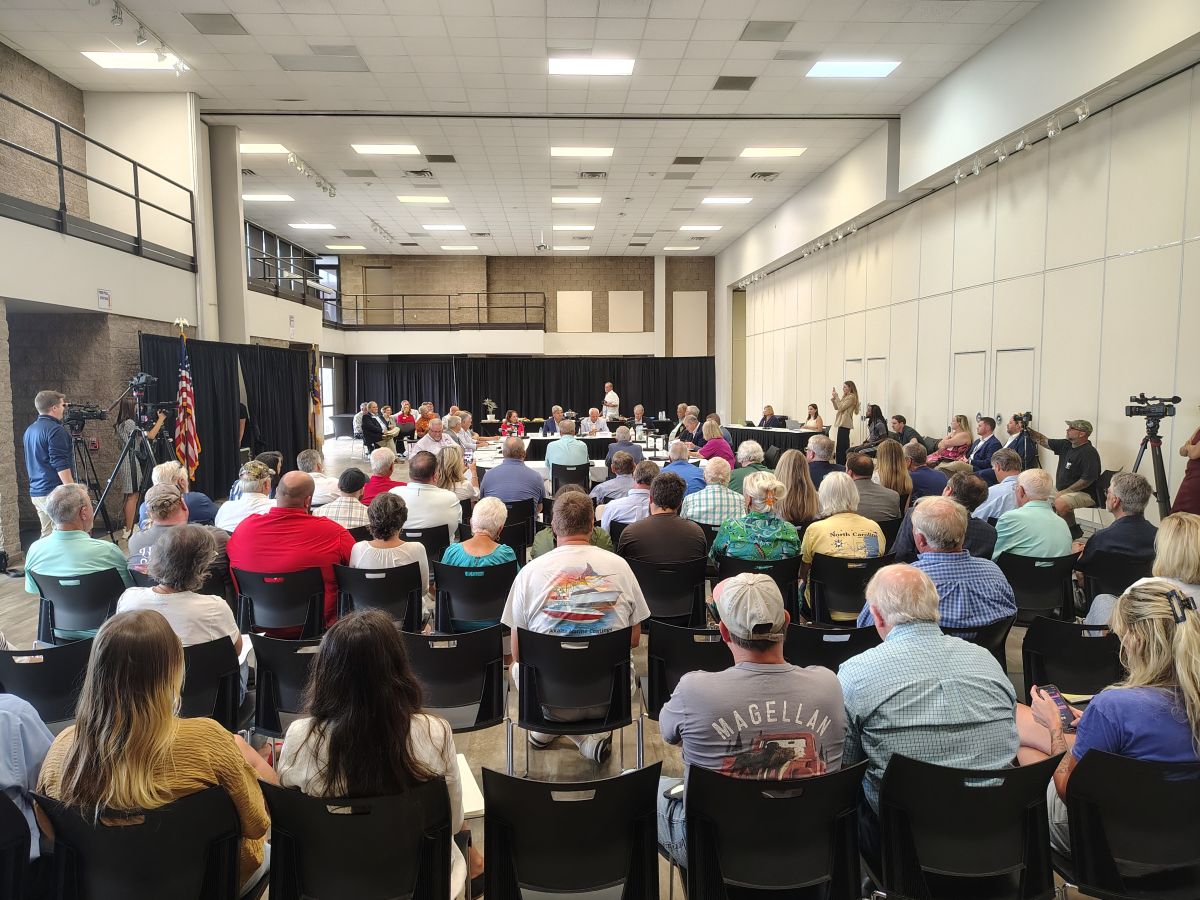
MOREHEAD CITY – Keep telling your story.
That was the message to those who attended the first meeting of the North Carolina Coastal Counties Fisheries Coalition held Tuesday afternoon in the Crystal Coast Civic Center.
Supporter Spotlight
Dare County Board of Commissioners Chairman Bob Woodard, who initiated the coalition to be a voice for the commercial fishing industry, welcomed elected officials and staff from Beaufort, Camden, Carteret, Chowan, Craven, Currituck, Dare, Hertford, Hyde, Onslow, Pamlico, Pasquotank, Perquimans, Tyrrell and Washington counties, and 10 coastal legislators or their representative.
“We’ve got a lot of folks here today concerned about this coalition, and this effort,” Woodard said, adding that many of the more than 100 in the audience were in Raleigh to protest House Bill 442.
But the head of the state’s recreational fishing association called the group’s goals “disappointing.”
‘No due process’
First introduced in March to open up the recreational season for flounder and red snapper, the Senate amended the bill in mid-June to include a trawling ban in the state’s inland waters and within a half-mile of the shoreline.
The proposed ban was met with both outcry and support, but when the Senate kicked the amended bill back to the House, representatives chose not to advance the bill. Since June 25, the bill has been parked in a House committee.
Supporter Spotlight
Woodard set the coalition in motion July 3 with a letter to the 18 other coastal counties that border bodies of water from which licensed commercial fishermen are required to report their catch, representing 20% of the state’s counties, he explained.
“That should send a clear voice to our legislators, that we got 20% of the entire counties in the state of North Carolina, and hopefully we will grow up more for people that believe in eating the fresh local seafood from clean, clear waters in our state, rather than foreign food that comes into our country. I don’t know about you, but I want to eat fresh, seafood,” he said.
When Woodard began the meeting Tuesday, he told the crowd that he was “appalled to see that (proposed trawling ban) went to the House,” and wrote a letter June 30 to Senate Leader Phil Berger.
Woodard read the second paragraph of that letter aloud: “Our democratic system, established by our forefathers, was designed to ensure that every voice in leadership could be heard-whether in support or opposition. At its core, our Constitution is built on mutual respect and, most importantly, due process.”
Woodard said, “everyone in this room sitting here today certainly knows there was no due process,” and then explained how he pitched the idea to form the coalition to a fellow commissioner.
“I said, ‘Enough is enough.’ I’ve been a chairman in Dare County for the last 10 years. I’ve been on the board the last 12 years,” Woodard said. “Every single year, we have to fight the regulatory agencies. We have to fight the leadership.”
It was time “to come together, not just counties, not just fishermen, but stakeholders all over the south and this entire state. We need to educate those legislators that aren’t living on the coast.”
Once given the board’s blessing, Woodard sent the letter proposing the North Carolina Coastal Counties Fisheries Coalition.
“The goal of this coalition is to bring together county leaders from coastal regions to address these critical issues with a unified voice. By coordinating our efforts, we can better advocate for the long-term health and sustainability of our fisheries, our local economies and our fishermen’s way of life,” Woodard said.
About the coalition
Members agreed that the coalition would be a public body and have its next meeting at 1 p.m. Sept. 16 in the civic center, ahead of when the legislature is expected to convene.
After that, the coalition will meet quarterly in Carteret County because of its central location.
Woodard emphasized he wanted the coalition to be “as transparent as humanly possible,” adding he wanted the “public to be here.”
The coalition adopted a mission statement to support commercial fishermen and fishing communities, protect their livelihoods, preserve coastal heritage, “and safeguard the economic vitality of our working waterfronts. Together, we work to ensure the continued harvest of high-quality North Carolina seafood—feeding families, strengthening communities, and ensuring North Carolina Catch remains a priority for consumers to enjoy throughout our state and beyond.”
During the discussion, Pamlico County Commissioner Candy Bohmert said that the coalition should focus on promoting — rather than stating it’s out to save — the commercial fishing industry.
“We don’t need to save these people. They save themselves. We need to empower them,” Bohmert said. “We really need to kind of change that language. We’re promoting them. We’re promoting our commercial history. We’re promoting all of that because they’re important.”
Bobby Outten, Dare County’s manager and attorney, is to serve as staff to the board.
Outten explained that the intention with the coalition is to act as a governmental body.
“The fisheries groups have for years been working hard to deal with fisheries issues, and what we found is the legislators aren’t listening, and it’s a hard road, and it’s a tough time,” Outten said.
The idea is to get the governmental entities of the affected counties together and “then be the voice for the political side of this,” Outten said.
Fisheries groups will still be the resource to disseminate the information, but the coalition will be “the voice of the political counties.”
From the legislators
There were nearly a dozen coastal legislators at the meeting, including Sen. Bobby Hanig, R-Currituck. Hanig has been a vocal opponent of the trawling ban since it was first proposed at a Senate committee meeting June 17.
“We’ve never had the opportunity to tell our story. Well, guess what God brought us? He brought us H442, and you know what that did? That wasn’t the shot heard around the world. That was the backfire heard around the world. Let me tell you why. Now we have the ability to be on the offense, and we have to keep that ability to be on the offense,” Hanig said.
That bill “is allowing us to tell our story,” he said, adding that it led to the coalition and got 700 people to Raleigh in about three days.
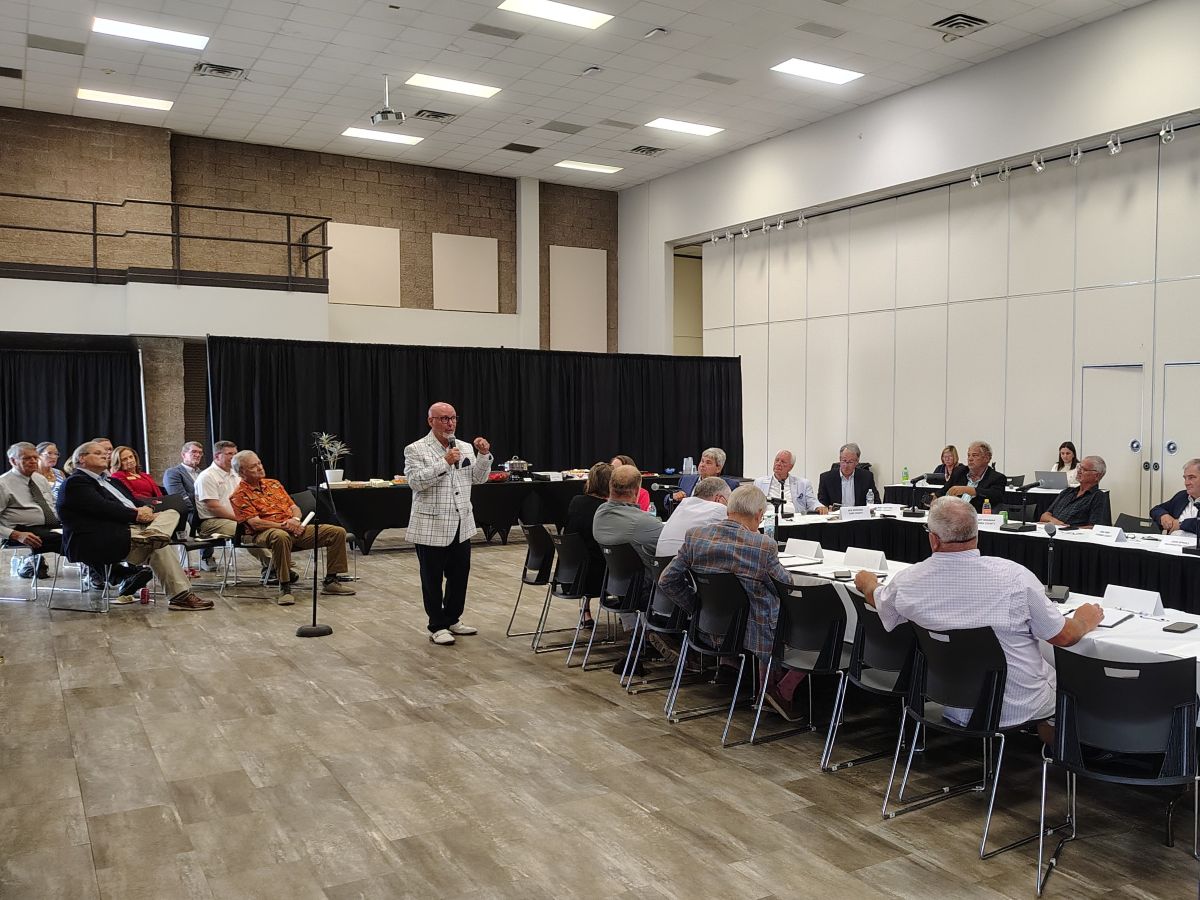
The turnout in Raleigh brought together various aspects of the industry, such as commercial fishermen, packing houses, “everybody. You know why? Because what’s the first thing they went after? The shrimp, right? They’re going after everything,” Hanig said. “Because that’s what they’re after, folks, they make no qualms about it. They’re after our industry.”
In response to an audience member asking who “they” are, Hanig said “Pick someone. The CCA, the Wildlife Federation, certain legislators, you know, their efforts. They’re after this industry. They make no bones about it. They’ve been telling the wrong story, the false story, for too long, and we haven’t stopped that.” The CCA is the Coastal Conservation Association North Carolina.
“I implore you, tell your story. Do not be afraid to tell your story,” Hanig said. “Let them know where you’re coming from, because those stories matter.”
Rep. Carson Smith, R-Pender, told the crowd that people in Raleigh think there’s no fish, no crabs, no shrimp, that “our fishery is completely depleted, because that’s what the Marine Fisheries Commission is telling them.”
He added that this message is what he feels pitted recreational against commercial fishing, and “they think that the shrimp trawl has killed all the fish.”
Smith suggested two resolutions: Ask the “General Assembly to completely redo the Marine Fisheries Commission,” and “tell the Wildlife Resources Commission, ‘hey, stay in your lane.’ You count the trout in the mountains, but don’t use state resources” to try to close the commercial fishing industry down.
Sen. Bob Brinson, R-Beaufort, said the best way to educate folks in Raleigh is by “getting them on your boats, getting them in your oyster beds, getting them in your fish houses, and showing them what it is you do and how you do it.”
Sen. Norm Sanderson, R-Carteret, explained that when the Senate voted on House Bill 442 June 19, four voted against, but 40-plus voted in favor, which he didn’t expect.
He later found out that the votes for the amendment were for the “environmental side because they claim that shrimp trawling was destroying the environment in our sound. That it was going to destroy all kinds of fishing. Well, that’s one of the talking points that the CCA has used for the last 20 years,” he said.
Sanderson said that he was also upset about how the bill was amended in the Senate, “because the process stunk to high heaven.”
He explained that he was co-chair in the Agriculture Committee when the amendment “first came about, and that is the last thing that you ever do to a committee chairman,” he said. “If you’ve got something that’s going to be contentious, if you’ve got something that’s going to cause a lot of outcry or pushback,” you should go to them before the meeting. But Sanderson said that’s not what happened in this case.
“Let’s stay strong. Keep helping us. Keep telling your story, spreading this message across and around this state, so that the next time this happens, there’ll be an outcry from all over this state,” he said.
Response from CCA-NC
Coastal Conservation Association-North Carolina Executive Director David Sneed told Coastal Review in an email that “it is disappointing to read the goal of this new coalition is apparently to create a vehicle only for ‘battling issues that affect the state’s commercial fishing industry’ (fewer than 2,000 people who profit from a public trust resource) rather than acting in the public interest for the 11 million citizens of North Carolina who own our public trust resources and would benefit enormously from a healthy, sustainable coastal fishery.”
The coalition would be better served by recognizing the foundational, bedrock principles established by the public trust doctrine and the state’s constitution. “That North Carolina’s coastal fisheries resources belong to all 11 million citizens of this State and must be managed, preserved, and protected for the overall benefit of those citizens and future generations. In addition, the coalition’s approach only divides and disenfranchises the not-for-profit fishing public that lives in and visits our coastal counties,” Sneed continued.
“There are more than 91,000 Coastal Recreational Fishing Licenses sold across the state’s 19 coastal counties each year, and it is reliably estimated that more than 300,000 people spend nearly $1.5 billion annually across the three Congressional Districts that encompass these 19 coastal counties—people who not only live in our coastal counties but also people from inland counties who visit our coast and spend money supporting our coastal fishing communities,” he said. “Our hope would be that any efforts by this coalition will be focused on building a true coalition in the public interest—one that will support the sound management of our coastal fisheries resources to achieve the long-term sustainability that all North Carolinians deserve and are entitled to under the law.”



